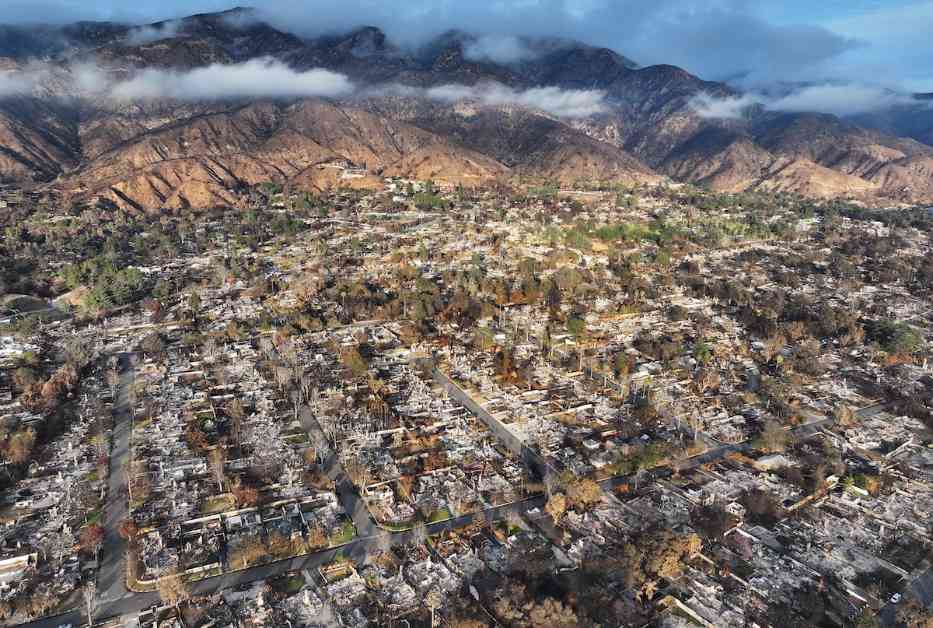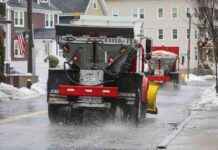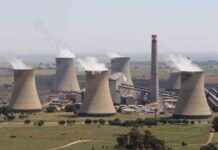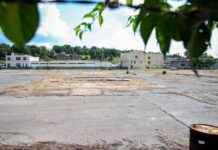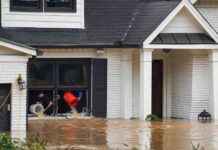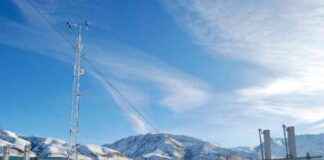A recent report from the World Weather Attribution sheds light on the devastating wildfires that swept through Los Angeles in January. The study concluded that these fires were not only more likely to occur but also more severe due to the impact of climate change. The scorching and dry conditions that provided the perfect environment for the fires were found to be 35% more likely as a result of human-induced climate change. Combined with a lack of rainfall, which was 2.4 times more likely due to climate change, and dry vegetation that acted as fuel for the fires, the risk of such catastrophic events was significantly heightened.
Theo Keeping, a wildfire researcher at the Leverhulme Centre for Wildfires at Imperial College London, emphasized the impact of even a slight increase in temperature on the likelihood of such extreme conditions around Los Angeles. With each fraction of a degree of warming, the risk of extremely dry and easily ignitable conditions in the city rises.
Unpacking the Study Methodology
Researchers employed a combination of weather data and computer models to determine the extent to which climate change contributed to the intensity of the wildfires. By comparing the pre-industrial climate to a more modern climate approximately 1.3°C above the baseline, they were able to quantify the influence of climate change. The study also incorporated the Fire Weather Index, which takes into account the hot, dry, and windy conditions that are conducive to wildfires. Analysis of total rainfall from October to December, typically marking the end of the fire season, and the drought code provided insight into the changing duration of the fire season in the region.
The findings revealed that the conditions that fueled the wildfires are projected to occur approximately once every 17 years, representing a 35% increase compared to a pre-industrial climate. Moreover, the Fire Weather Index was found to be 6% more intense in an environment impacted by climate change, indicating a concerning trend of escalating fire intensity.
John Abatzoglou, a climatology professor at the University of California Merced, highlighted the absence of fall rains in 2024, a departure from previous years. The delayed onset of rainfall exacerbated the fire risk, leaving communities vulnerable to the devastating impact of wildfires.
Impact on Vulnerable Communities
The repercussions of the wildfires extend beyond environmental concerns, with thousands of structures destroyed and lives lost. Vulnerable populations, including the elderly, individuals with disabilities, and low-income groups lacking access to personal transportation, were disproportionately affected. The fires also underscored critical weaknesses in Los Angeles’ water infrastructure, designed for more routine fires rather than the unprecedented devastation witnessed.
Nadia Hasan, a communications advisor for nonprofit Global Witness, emphasized the role of fossil fuel pollution in exacerbating natural disasters like wildfires. Hasan called for accountability from oil companies that have perpetuated the climate crisis through their practices, prioritizing profit over environmental preservation.
Park Williams, a geography professor at the University of California, highlighted the need for communities to adapt to the changing landscape post-wildfire. With the potential for rapid vegetation regrowth and a heightened risk of future fires, resilient strategies must be implemented to mitigate future disasters.
The report serves as a sobering reminder of the urgent need for climate action to prevent further escalation of wildfires and other environmental catastrophes. As global warming trends continue, the Fire Weather Index is projected to intensify, making similar disasters increasingly probable. The consequences of inaction are stark, underscoring the necessity of immediate and comprehensive measures to combat climate change.
Michael Riojas, a reporter and editorial assistant for EcoWatch, brings a unique perspective to environmental journalism, blending his passion for philosophy, politics, and environmental issues. With a background in advocacy and a commitment to promoting sustainability, Riojas embodies the spirit of informed and engaged journalism in the fight against climate change.

